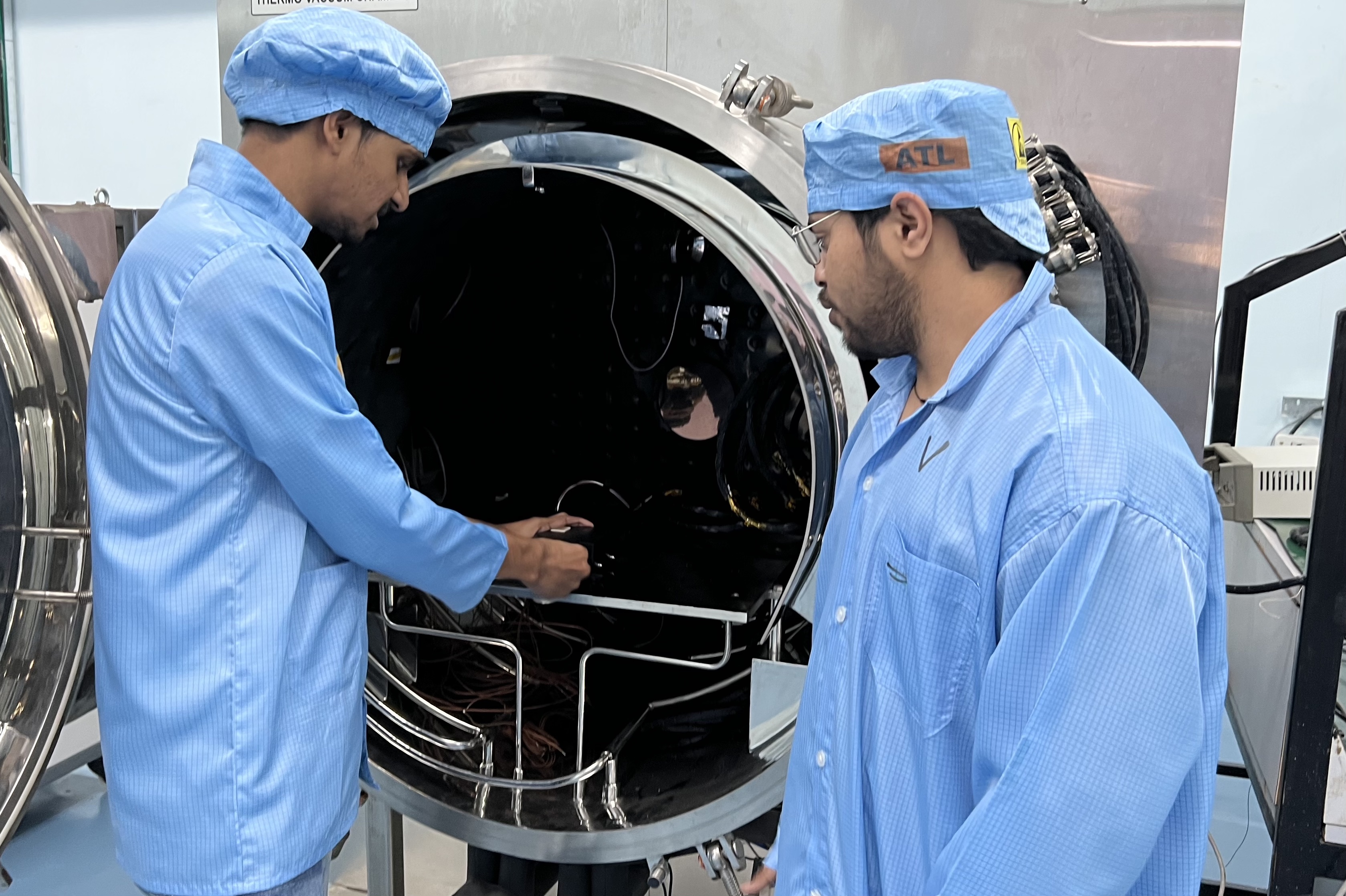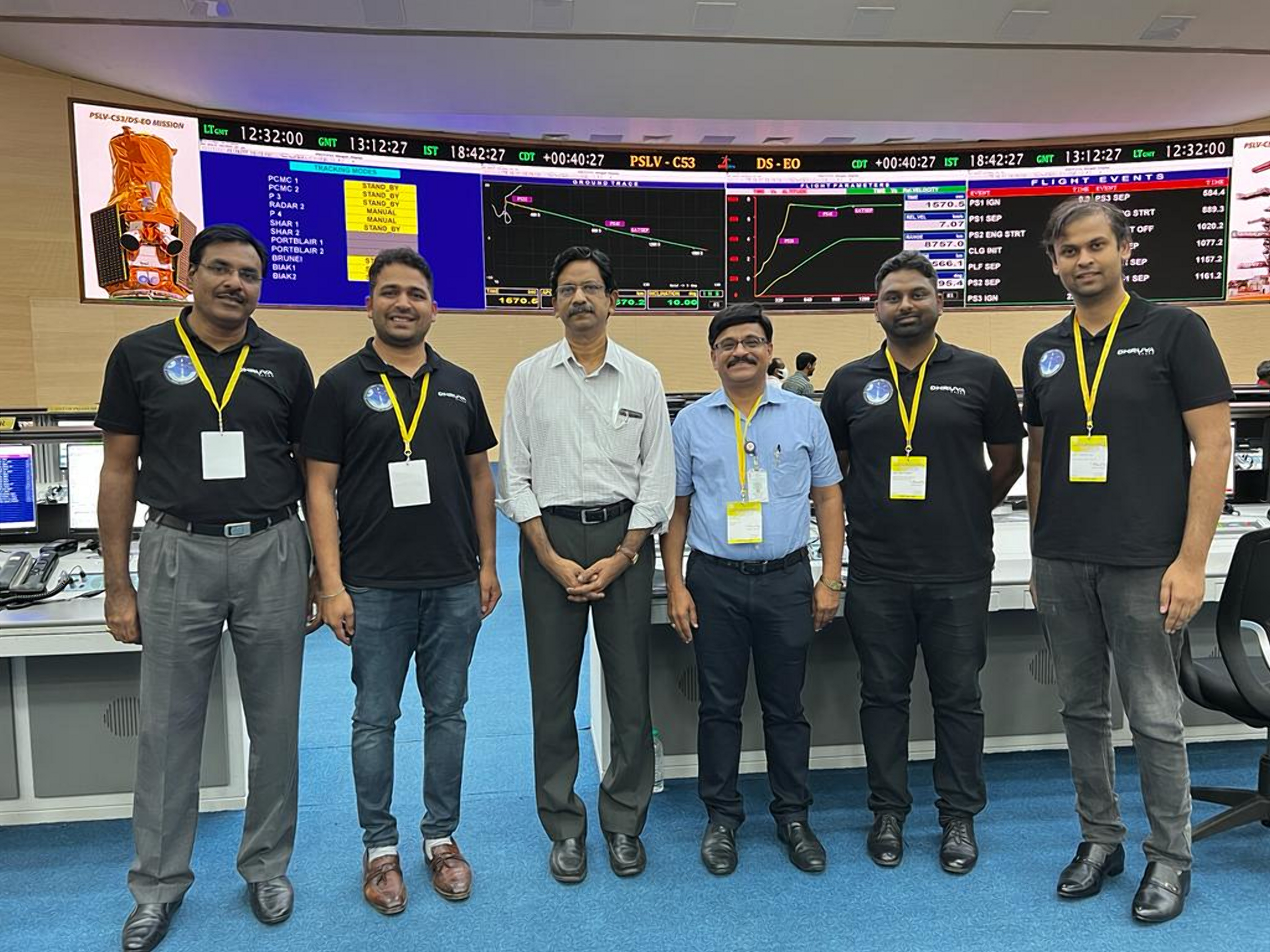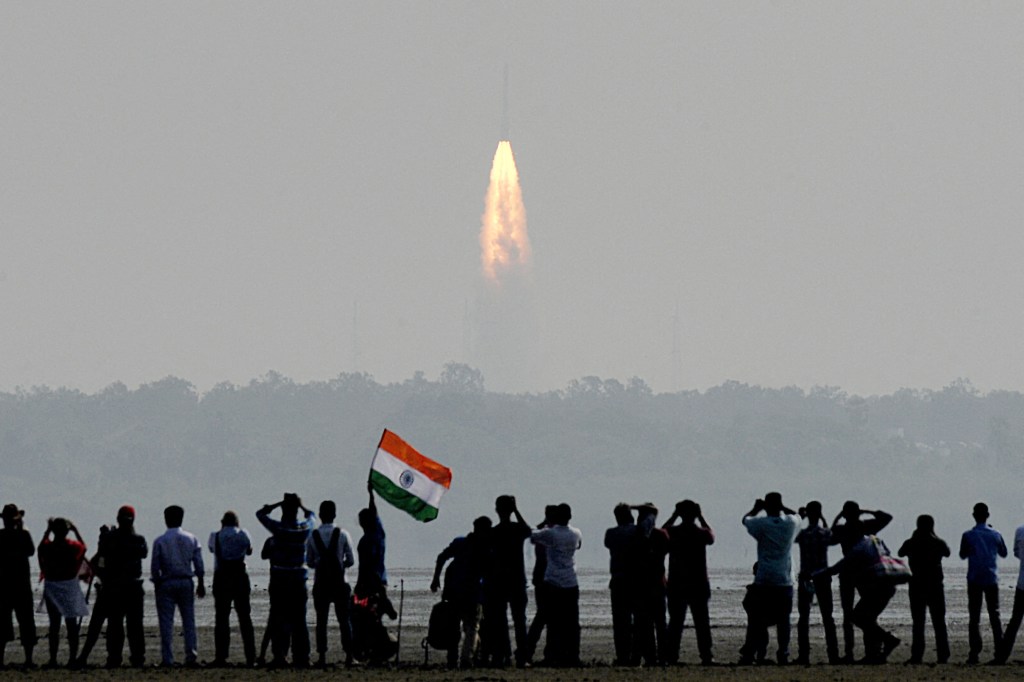Anirudh Sharma graduated from engineering college just two years ago, but the 23-year-old is in the thick of a revolution.
In June this year, Sharma’s company, Digantara – which translates to “space” in Sanskrit – launched what’s arguably the world’s first commercial space-based space weather system, whose technology, he says, is “kind of like Google Maps for space.”
Videos by VICE
The same month, India’s Prime Minister Narendra Modi mentioned Digantara in his monthly radio show as part of India’s cutting-edge space companies that the world should look out for. By 2021, Digantara had raised millions in seed funding. It is India’s first private company that’s ready to send 40 satellites to identify and potentially clean up space junk. Space junk moves 15 times the speed of a bullet, and can smash spacecraft into pulp. The space junk monitoring market is, by one estimate, worth $2.9 billion this year.
“Honestly, it’s just great timing, not just as a company focusing in this area, but also as an Indian company,” Sharma told VICE World News about starting Digantara along with co-founders Rahul Rawat and Tanveer Ahmed. They were in the right place, at the right time.

The space programme in the world’s biggest democracy has existed since 1969, with the formation of the government’s Indian Space Research Organisation (ISRO). But in 2020, Modi announced that the country is going to put its heart – and money – into the private sector. This could, one government official ambitiously told the Indian media, lead to India’s own “SpaceX-type ventures.”
Sharma says Indian private space companies are, in fact, growing faster than SpaceX, the American billionaire techie Elon Musk’s space empire, which is valued at over $100 billion. “Other countries are recognising that India is going to be huge in space, and it will continue to grow,” he added.
The global space economy is :text=India’s%20share%20in%20the%20estimated,Sabha%20was%20informed%20on%20Wednesday.” target=”_blank” rel=”noopener”>2 percent of it. But experts say things are changing at a pace that makes the country the next big thing in outer space.
A big part of this change is India’s shift to privatisation of space exploits.
There have been over 100 active space startups since 2012, according to the Economic Survey of India. Many of them are currently jostling to be authorised by the newly-minted InSpace, or the Indian National Space Promotion and Authorisation Centre, an agency that acts as a link between ISRO and private sector companies. Digantara is one of the two private companies to have received authorisations so far.
Vinod Kumar, director of promotions at InSpace, told VICE World News the department had received about 150 proposals from private space companies since 2020. He predicts India will make up at least 10 percent of the global space economy in the next decade, up from the current 2 percent.
“India is poised for growth,” he said, adding an upcoming space policy will be investor friendly.
Chethan Kumar, a Times of India journalist who has been covering the space sector for a decade, told VICE World News that the biggest impact from privatisation is the independence and financial support given to the private players. ISRO has over 350 private partners, putting the country in fifth place globally in terms of strength of private companies in the space sector. But their role was restricted to building components for ISRO.
“It was only a matter of time for the government to empower private companies in the space sector,” said Kumar. “I’d even say that this could’ve come a decade ago, given ISRO’s considerable progress in developing indigenous space technology. The time has now come to create newer space tech and on-demand launch services, which will require commercial players’ participation complementing that of ISRO.”
The competition is tough. When it comes to space, NASA has pretty much captured global imaginations – from being the first to get humans to the moon, to helming missions to Mars. It works closely with private companies like SpaceX, and was allotted $30.62 billion this year by the U.S. government. Russia – the OG space superpower with which the U.S. has had a history of partnering – has hit a rough patch this year with the country’s invasion of Ukraine, and is functioning with a state budget of $2.97 billion. China’s space program had an estimated government budget of $13 billion in 2020, and its private space investment was nearly a billion dollars.
India’s space budget, in comparison – $1.7 billion for this year – is small. In this space race, the U.S. has 1,650 assets in outer space, while China has 450. India, so far, has 80.
But given the geopolitical shifts in recent years, experts are optimistic about the Indian program. For one, India sets the bar really high in exhibiting and supplying competitive space technology and manufacturing at a fraction of global costs. India’s first Mars mission in 2014, for example, cost the country $74 million. NASA’s Mars mission launched the same week cost 9 times more.
“Space is unforgiving, with zero margin for error. So while ISRO has been able to build technology and systems that are affordable, they are also reliable systems of good quality,” said Kumar, the journalist. And there’s no dearth of manpower either.
A new report by the Indian Space Association and Ernst & Young predicted that India’s space economy is expected to be worth $13 billion in 2025. While its satellite manufacturing sector is expected to be worth $3.2 billion in 2025 – a huge jump from half a billion in 2020 – the “downstream” sector, which includes ground services, is expected to be worth $4 billion the same year.
Narayan Prasad, co-founder of India’s first space think tank, Spaceport Sarabhai, told VICE World News that India is looking at its own “Henry Ford moment,” where India has emerged as the favourite choice in the global space market. “With China being seen as unreliable collaborators, and Russia’s war impeding global trust, India stands out in a unique place with its space capabilities, ability to do business and the right mix of talent and infrastructure,” he said. “There’s literally no limit to what can be achieved.”
Prasad added that much of the success of India’s current private players are on the backs of four generations of their predecessors, starting with legacy companies such as Godrej that have been in the business for over 30 years. But many companies were struggling even just a decade back.
Dhruva Space, one of the two private companies authorized by InSpace, said they started in 2012 with the aim to privatise space activity in India. But things weren’t so great. “The market was not very receptive to space entrepreneurs trying to build a full solution, therefore there was not much access to capital,” Sanjay Nekkanti, Dhruva CEO, told VICE World News.

Much of India’s space advancement used to be either in academia or government, he added. Dhruva, which designs space missions and builds space infrastructure for India and international clients, found a lease of life in 2020. In an ecosystem where vendors that replicate and build space parts have been thriving for decades, companies like Dhruva now have enough capital to build indigenous products and shore up intellectual property. For the next two quarters, they want to not just take technological leaps, but also enable global customers to launch their own satellites on Dhruva’s deployers.
“India’s new space economy is on the edge of lift-off and I foresee a striking new era of tech investment. In fact, it’s already happening,” Dhruva CFO Chaitanya Dora Surapureddy told VICE World News.
Kumar, the journalist, says the country is still in the process of becoming the go-to place for space technology and manufacturing for the global market. “While rich countries will be able to leapfrog given the capital and purchasing power, this might not possible for others, therefore giving a chance to countries like India to supply,” he said. But more government funding is needed for space diplomacy and for India to become a bigger player, he added.
The next big thing in India’s business of space is defence. Last year, the then Indian Chief of Defence Staff General Bipin Rawat said space is critical to operations both in peace and conflict, and that the privatisation of space will be essential to that. This year, Digantara set up India’s first private space situational awareness observatory on the foothills of the Himalayas. It monitors satellites. “This will bring indigenous capabilities to the nation for both military and civilian applications,” said Anirudh Sharma.
India’s private space empire may have started 50 years after the world’s first moon landing, but many in the industry feel the country’s private companies aren’t here just to win it. Apart from taking India’s dreams to outer space, several space technology companies are working to bridge the gap between space technology and addressing problems unique to the Indian subcontinent.
A company called Numer8, for instance, predicts climate change patterns to help fishermen. Another startup called Vassar Labs uses satellite imagery to advise governments on climate change’s impact on India’s water resources. Another startup called Skylo developed, among other things, agriculture sensors that measure and deploy soil nutrient and watering needs in India, where 70 percent of rural households depend on agriculture.
“I don’t believe India is in a space race with anyone,” said Prasad. “India will benefit from the convergence of infrastructure, experience, talent, capital and the openness of the global market to engage with the country, to build space products to benefit not just businesses and government, but also citizens.”
Editor’s Note: Vinod Kumar’s response was added to the article on October 13.
Follow Pallavi Pundir on Twitter.
More
From VICE
-

(Photo by Tim Mosenfelder/Getty Images) -

Jeff Kravitz/FilmMagic, Inc -

Billy Bob Thornton at the 'Bad Santa' premiere (Photo by Dave Benett/Getty Images) -

Home Alone (Credit: 20th Century Fox)



